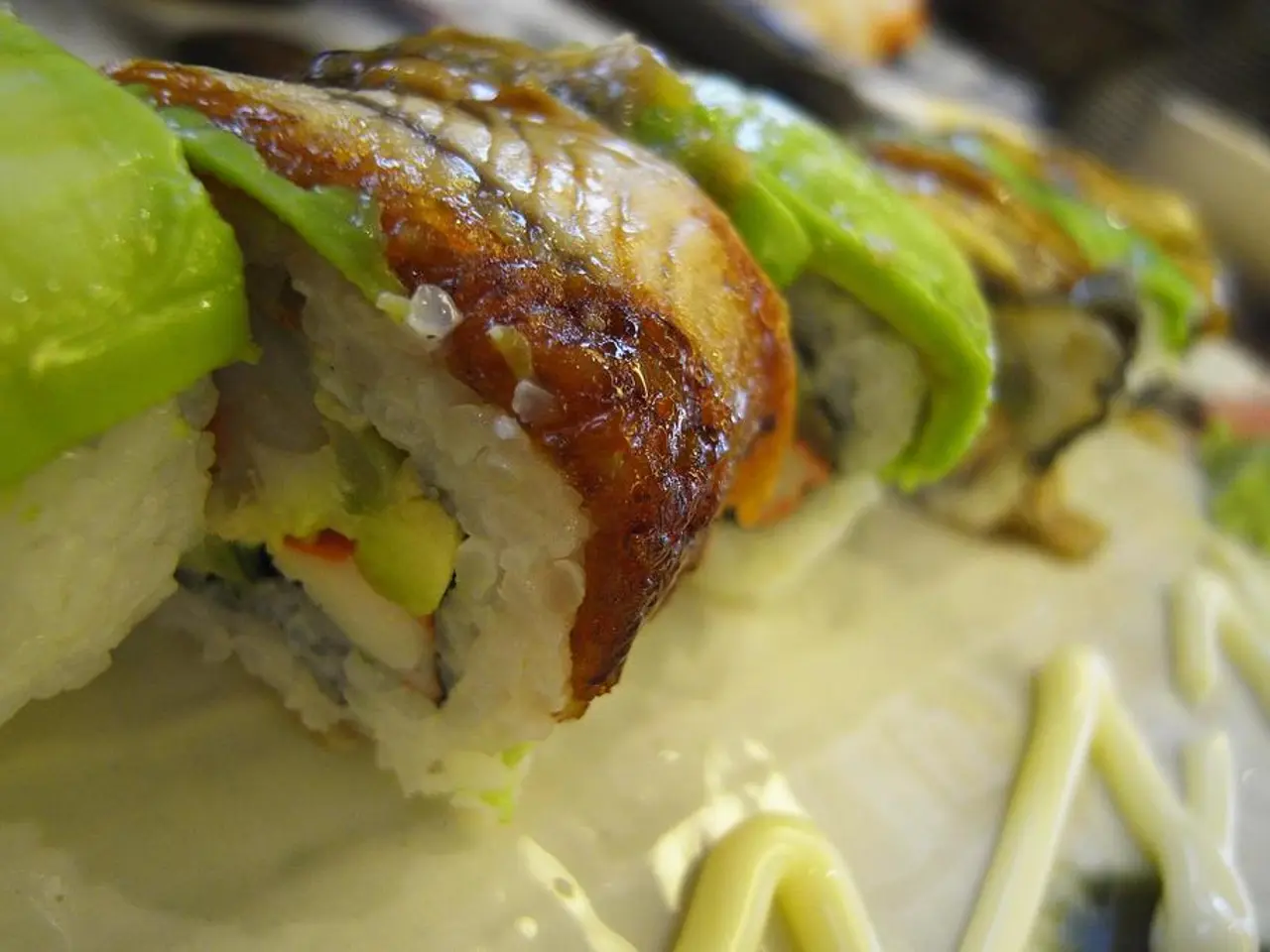Consuming sprouts: always ensure to clean the sprouts prior to consumption
In the world of fresh produce, sprouts have gained popularity for their nutritional benefits and versatility in various dishes. However, it's essential to handle, store, and cook them correctly to prevent potential health risks, particularly Salmonella contamination.
When it comes to storage, sprouts should be refrigerated at 40°F (4°C) or below to limit bacterial growth. It's advisable to avoid keeping sprouts at room temperature for extended periods and to keep them separate from raw meat, poultry, and seafood during storage to prevent cross-contamination. Washing hands thoroughly before and after handling sprouts and rinsing utensils, cutting boards, and surfaces used for sprouts with hot soapy water before reuse is also crucial.
Cooking sprouts thoroughly is of utmost importance, as raw or lightly cooked sprouts have been linked to Salmonella outbreaks. Cooking to an internal temperature of 165°F (74°C), which is typically recommended for poultry and similar contaminated foods, is a common practice to kill Salmonella bacteria. Vulnerable populations, such as young children, elderly, pregnant women, and immunocompromised individuals, should consider avoiding raw sprouts entirely due to their higher risk.
For home-grown sprouts, purchasing seeds from a specialized store is recommended. Even "ready-to-eat" sprout products should be thoroughly washed before consumption. It's worth noting that bacterial, such as Salmonella, can contaminate sprouts, and sprouts like mung bean, radish, beet, or alfalfa can be used in a variety of dishes, including Asian curries, salads, soups, bread, and wraps.
Sautéing sprouts until crispy or crispy-frying them for salads can also help kill harmful bacteria. High heat can kill bacteria in sprouts, making them safer for consumption. However, because sprouts can harbour internalized Salmonella that survives washing, thorough cooking remains the most reliable way to ensure safety.
Commercial operations often use chemical sanitizers like chlorine-based or peroxyacetic acid to reduce bacterial load on sprouts and seeds. Physical treatments such as UV radiation, dry heat seed treatment, and pulse light can also decrease pathogen presence on seeds and sprouts. Multiple hurdle interventions combining chemical and physical methods improve safety in commercial production.
In summary, keeping sprouts refrigerated, avoiding cross-contamination, washing hands and surfaces carefully, and thoroughly cooking sprouts before eating are key practices to prevent Salmonella infection. Vulnerable populations should consider avoiding raw sprouts entirely due to their higher risk. Raw food should always be washed, but it's especially important to wash sprouts. Hygiene rules apply to home-grown sprouts, and nightshade plants (tomatoes, peppers, eggplants) are not suitable for sprouting due to the presence of toxic solanine.
- To limit bacterial growth in sprouts during storage, they should be refrigerated at 40°F (4°C) or below.
- Cooking sprouts thoroughly to an internal temperature of 165°F (74°C) can help kill Salmonella bacteria, which is particularly important for vulnerable populations.
- Washing hands thoroughly before and after handling sprouts, rinsing utensils, cutting boards, and surfaces used for sprouts with hot soapy water before reuse, and keeping sprouts separate from raw meat, poultry, and seafood during storage can prevent cross-contamination and contribute to maintaining health and wellness.




